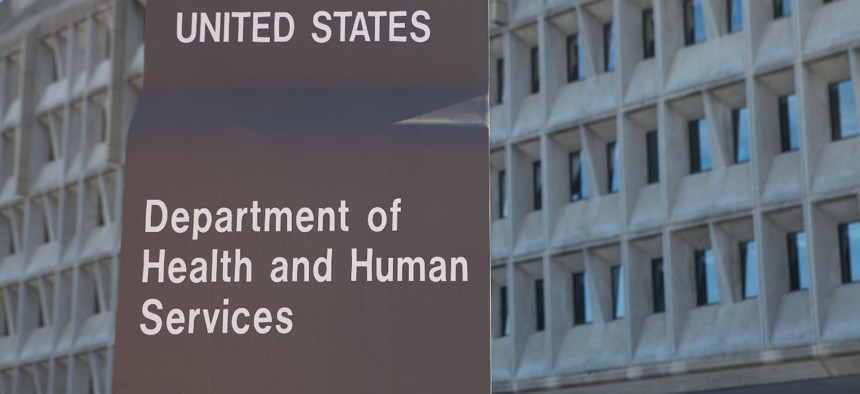
By Mark Van Scyoc / Shutterstock.com
Coronavirus Roundup: Watchdog Finds Issues With HHS Emergency Responders’ Training; FDA Expands Its Data Gathering Efforts
There's a lot to keep track of. Here’s today’s list of news updates and stories you may have missed.
Businesses are starting to reopen, but the U.S. economy is still suffering from the pandemic. For the 13th straight week, claims for unemployment benefits surpassed 1 million, according to the Labor Department’s weekly report. Here are some other recent headlines you might have missed.
Sixty-percent of federal employees and contractors who are still teleworking feel “very uncomfortable” about returning to their workplaces. Another 15% said they are “slightly uncomfortable” about it, according to a new survey by Federal News Network. About 1,888 federal employees and contractors responded to the survey in mid-June.
A Government Accountability Office report issued on Thursday identified issues with the Health and Human Services Department’s management of emergency responders over the last three years. “The seriousness of recent natural disasters and the COVID-19 pandemic illustrate the importance of having a skilled workforce to respond to public health crises,” said GAO. “However, our past work and current review of [the assistant secretary for preparedness and response’s] workforce planning and training raise concerns about ... efforts to prepare [National Disaster Medical System] responders to assist during public health emergencies.” GAO made five recommendations, with which the agency agreed.
The Occupational Safety and Health Administration released guidance on Thursday for non-essential businesses reopening. The agency outlined a three-phased approach that supplements guidelines already put out by HHS, the Labor Department and White House. “While covered employers are always responsible for complying with all applicable OSHA requirements, the agency’s standards for [personal protective equipment], respiratory protection, and sanitation may be especially relevant for preventing the spread of COVID-19,” OSHA said. “Where there is no OSHA standard specific to SARSCoV-2, employers have the responsibility to provide a safe and healthful workplace that is free from serious recognized hazards under...the Occupational Safety and Health Act of 1970.”
The Internal Revenue Service released guidance on Friday to help retirement plan participants affected by the pandemic use the provisions of the CARES Act that allow them to access their plans and loans.
Rep. Lauren Underwood, D-Ill., introduced a bill on Thursday that would direct the Homeland Security Department to provide resources and guidance to local public health and safety officials to help them combat misinformation about the pandemic. She noted this is not a new phenomena, so “federal leadership is necessary.”
The Food and Drug Administration announced on Thursday it’s partnering with a public-private collaborative project to expand its use of data. “We recognize that questions related to the accuracy of diagnostic tests require different data elements that are not as widely available as those in the therapeutic space. They also require a different approach to data integration and analysis,” said Dr. Jeff Shuren, director of FDA's Center for Devices and Radiological Health. “The aim of the [COVID-19 Diagnostics Evidence Accelerator] is to propose questions, refine them, evaluate the feasibility of different approaches, and bring together groups that have the data to answer the questions and develop lasting solutions. Ultimately, we hope that real-world data can provide a more generalizable and rapid read-out of results than traditional clinical trials.”
On Thursday, the Office of Special Counsel found "substantial likelihood of wrongdoing" from a Transportation Security Administration official’s whistleblower complaint on the agency’s failures to protect staff during the pandemic. The allegations include: TSA withheld masks from staff, didn’t permit staff to wear them and didn’t require them to change or sanitize their gloves between passenger screenings, NPR reported. Government Executive previously reported related issues TSA screeners faced during the coronavirus outbreak.
President Trump said in an interview with Politico on Thursday that mail-in voting (which many states are expanding due to the pandemic) is his “biggest risk” to not winning re-election. His campaign is involved in legal battles to block expanded vote-by-mail access, which the president believes is susceptible to fraud. Government Executive previously reported that while Trump and other Republicans alleged that voting by mail is not secure, some election experts and former military officials say otherwise, noting that U.S. troops and civilians posted overseas have been doing it successfully for decades. Also, among other things, states can use their CARES Act funds to expand absentee or vote-by-mail programs, according to the Election Assistance Commission.
An investigation by VICE and The Marshall Project published on Thursday detailed how the Federal Bureau of Prisons was not prepared to handle the pandemic. In April, Government Executive reported on an OSHA complaint by the BOP union that said federal prisons are “proliferating the spread” of coronavirus and cited “imminent danger” conditions nationwide.
Upcoming: White House Press Secretary Kayleigh McEnany will hold a briefing at 1p.m.
Today’s GovExec Daily podcast episode looks at the security landscape of the November elections that will happen in the wake of the pandemic.
Help us understand the situation better. Are you a federal employee, contractor or military member with information, concerns, etc. about how your agency is handling the coronavirus? Email us at newstips@govexec.com.







